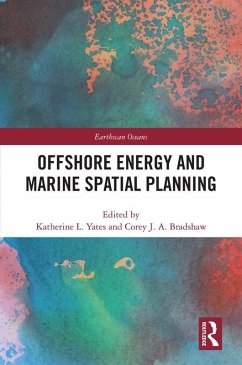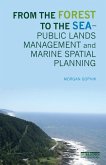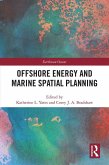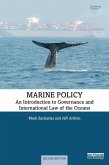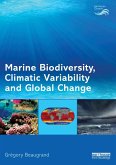Offshore Energy and Marine Spatial Planning (eBook, ePUB)
Redaktion: Yates, Katherine L.; Bradshaw, Corey J. A.
47,95 €
47,95 €
inkl. MwSt.
Sofort per Download lieferbar

24 °P sammeln
47,95 €
Als Download kaufen

47,95 €
inkl. MwSt.
Sofort per Download lieferbar

24 °P sammeln
Jetzt verschenken
Alle Infos zum eBook verschenken
47,95 €
inkl. MwSt.
Sofort per Download lieferbar
Alle Infos zum eBook verschenken

24 °P sammeln
Offshore Energy and Marine Spatial Planning (eBook, ePUB)
Redaktion: Yates, Katherine L.; Bradshaw, Corey J. A.
- Format: ePub
- Merkliste
- Auf die Merkliste
- Bewerten Bewerten
- Teilen
- Produkt teilen
- Produkterinnerung
- Produkterinnerung

Bitte loggen Sie sich zunächst in Ihr Kundenkonto ein oder registrieren Sie sich bei
bücher.de, um das eBook-Abo tolino select nutzen zu können.
Hier können Sie sich einloggen
Hier können Sie sich einloggen
Sie sind bereits eingeloggt. Klicken Sie auf 2. tolino select Abo, um fortzufahren.

Bitte loggen Sie sich zunächst in Ihr Kundenkonto ein oder registrieren Sie sich bei bücher.de, um das eBook-Abo tolino select nutzen zu können.
Offshore energy generation is a rapidly growing sector, competing for space in an already busy seascape. This book brings together the ecological, economic and social implications of the spatial conflict this growth entails.
- Geräte: eReader
- ohne Kopierschutz
- eBook Hilfe
- Größe: 3.63MB
Andere Kunden interessierten sich auch für
![From the Forest to the Sea - Public Lands Management and Marine Spatial Planning (eBook, ePUB) From the Forest to the Sea - Public Lands Management and Marine Spatial Planning (eBook, ePUB)]() Morgan GopnikFrom the Forest to the Sea - Public Lands Management and Marine Spatial Planning (eBook, ePUB)47,95 €
Morgan GopnikFrom the Forest to the Sea - Public Lands Management and Marine Spatial Planning (eBook, ePUB)47,95 €![Offshore Energy and Marine Spatial Planning (eBook, PDF) Offshore Energy and Marine Spatial Planning (eBook, PDF)]() Offshore Energy and Marine Spatial Planning (eBook, PDF)47,95 €
Offshore Energy and Marine Spatial Planning (eBook, PDF)47,95 €![Marine Policy (eBook, ePUB) Marine Policy (eBook, ePUB)]() Mark ZachariasMarine Policy (eBook, ePUB)51,95 €
Mark ZachariasMarine Policy (eBook, ePUB)51,95 €![The Great Barrier Reef (eBook, ePUB) The Great Barrier Reef (eBook, ePUB)]() Ben DaleyThe Great Barrier Reef (eBook, ePUB)49,95 €
Ben DaleyThe Great Barrier Reef (eBook, ePUB)49,95 €![Economic Incentives for Marine and Coastal Conservation (eBook, ePUB) Economic Incentives for Marine and Coastal Conservation (eBook, ePUB)]() Economic Incentives for Marine and Coastal Conservation (eBook, ePUB)45,95 €
Economic Incentives for Marine and Coastal Conservation (eBook, ePUB)45,95 €![Marine Biodiversity, Climatic Variability and Global Change (eBook, ePUB) Marine Biodiversity, Climatic Variability and Global Change (eBook, ePUB)]() Grégory BeaugrandMarine Biodiversity, Climatic Variability and Global Change (eBook, ePUB)74,95 €
Grégory BeaugrandMarine Biodiversity, Climatic Variability and Global Change (eBook, ePUB)74,95 €![Routledge Handbook of Ocean Resources and Management (eBook, ePUB) Routledge Handbook of Ocean Resources and Management (eBook, ePUB)]() Routledge Handbook of Ocean Resources and Management (eBook, ePUB)64,95 €
Routledge Handbook of Ocean Resources and Management (eBook, ePUB)64,95 €-
-
-
Offshore energy generation is a rapidly growing sector, competing for space in an already busy seascape. This book brings together the ecological, economic and social implications of the spatial conflict this growth entails.
Dieser Download kann aus rechtlichen Gründen nur mit Rechnungsadresse in A, B, BG, CY, CZ, D, DK, EW, E, FIN, F, GR, HR, H, IRL, I, LT, L, LR, M, NL, PL, P, R, S, SLO, SK ausgeliefert werden.
Produktdetails
- Produktdetails
- Verlag: Taylor & Francis eBooks
- Seitenzahl: 324
- Erscheinungstermin: 29. März 2018
- Englisch
- ISBN-13: 9781317356417
- Artikelnr.: 56837233
- Verlag: Taylor & Francis eBooks
- Seitenzahl: 324
- Erscheinungstermin: 29. März 2018
- Englisch
- ISBN-13: 9781317356417
- Artikelnr.: 56837233
- Herstellerkennzeichnung Die Herstellerinformationen sind derzeit nicht verfügbar.
Katherine L. Yates is a Lecturer at The University of Salford, United Kingdom, specialising in spatial planning, distribution modelling, and stakeholder engagement. She is also a National Environmental Research Council Knowledge Exchange Fellow working with the United Kingdom Marine Management Organisation. Corey J. A. Bradshaw is Matthew Flinders Fellow in Global Ecology and Professor in the College of Science and Engineering at Flinders University in Adelaide, Australia. His research is mainly in the area of global-change ecology-how human endeavour and climate fluctuations have altered past, present, and future ecosystems.
Introduction: Marine spatial planning in the age of offshore energy 1.
Marine spatial planning: an idea whose time has come 2. Methods and utility
of ecosystem service trade-off analysis for guiding marine planning of
offshore energy 3. It starts with a conversation: achieving conservation
goals in collaboration with the offshore energy industry 4. Challenges and
opportunities for governance in marine spatial planning 5. Legal aspects of
marine spatial planning 6. Displacement of existing activities 7. Tracing
regime shifts in the provisionof coastal-marine cultural ecosystem services
8. Environmental implications of offshore energy 9. Meaningful stakeholder
participation in marine spatial planning with offshore energy 10. Capturing
benefits: opportunities for the co-location of offshore energy and
fisheries 11. Compatibility of offshore energy installations with marine
protected areas 12. Marine spatial planning and stakeholder collaboration:
advancing offshore wind energy and ocean ecosystem protection in New
England 13. Co-locating offshore wind farms and marine protected areas: a
United Kingdom perspective 14. Conservation challenges in the face of new
hydrocarbon discoveries in the Mediterranean Sea 15. Siting offshore energy
arrays: a case study using interactive marine planning 16. The future of
marine spatial planning
Marine spatial planning: an idea whose time has come 2. Methods and utility
of ecosystem service trade-off analysis for guiding marine planning of
offshore energy 3. It starts with a conversation: achieving conservation
goals in collaboration with the offshore energy industry 4. Challenges and
opportunities for governance in marine spatial planning 5. Legal aspects of
marine spatial planning 6. Displacement of existing activities 7. Tracing
regime shifts in the provisionof coastal-marine cultural ecosystem services
8. Environmental implications of offshore energy 9. Meaningful stakeholder
participation in marine spatial planning with offshore energy 10. Capturing
benefits: opportunities for the co-location of offshore energy and
fisheries 11. Compatibility of offshore energy installations with marine
protected areas 12. Marine spatial planning and stakeholder collaboration:
advancing offshore wind energy and ocean ecosystem protection in New
England 13. Co-locating offshore wind farms and marine protected areas: a
United Kingdom perspective 14. Conservation challenges in the face of new
hydrocarbon discoveries in the Mediterranean Sea 15. Siting offshore energy
arrays: a case study using interactive marine planning 16. The future of
marine spatial planning
Introduction: Marine spatial planning in the age of offshore energy 1.
Marine spatial planning: an idea whose time has come 2. Methods and utility
of ecosystem service trade-off analysis for guiding marine planning of
offshore energy 3. It starts with a conversation: achieving conservation
goals in collaboration with the offshore energy industry 4. Challenges and
opportunities for governance in marine spatial planning 5. Legal aspects of
marine spatial planning 6. Displacement of existing activities 7. Tracing
regime shifts in the provisionof coastal-marine cultural ecosystem services
8. Environmental implications of offshore energy 9. Meaningful stakeholder
participation in marine spatial planning with offshore energy 10. Capturing
benefits: opportunities for the co-location of offshore energy and
fisheries 11. Compatibility of offshore energy installations with marine
protected areas 12. Marine spatial planning and stakeholder collaboration:
advancing offshore wind energy and ocean ecosystem protection in New
England 13. Co-locating offshore wind farms and marine protected areas: a
United Kingdom perspective 14. Conservation challenges in the face of new
hydrocarbon discoveries in the Mediterranean Sea 15. Siting offshore energy
arrays: a case study using interactive marine planning 16. The future of
marine spatial planning
Marine spatial planning: an idea whose time has come 2. Methods and utility
of ecosystem service trade-off analysis for guiding marine planning of
offshore energy 3. It starts with a conversation: achieving conservation
goals in collaboration with the offshore energy industry 4. Challenges and
opportunities for governance in marine spatial planning 5. Legal aspects of
marine spatial planning 6. Displacement of existing activities 7. Tracing
regime shifts in the provisionof coastal-marine cultural ecosystem services
8. Environmental implications of offshore energy 9. Meaningful stakeholder
participation in marine spatial planning with offshore energy 10. Capturing
benefits: opportunities for the co-location of offshore energy and
fisheries 11. Compatibility of offshore energy installations with marine
protected areas 12. Marine spatial planning and stakeholder collaboration:
advancing offshore wind energy and ocean ecosystem protection in New
England 13. Co-locating offshore wind farms and marine protected areas: a
United Kingdom perspective 14. Conservation challenges in the face of new
hydrocarbon discoveries in the Mediterranean Sea 15. Siting offshore energy
arrays: a case study using interactive marine planning 16. The future of
marine spatial planning
